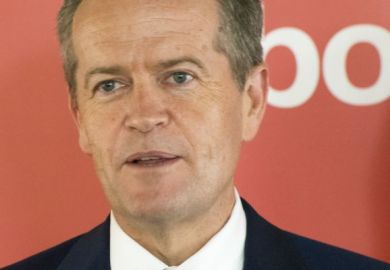A vice-chancellor who has robustly defended the high salaries of university leaders enjoyed a £66,000 pay rise in the last academic year, latest figures show.
George Holmes, who has led the University of Bolton since 2006, was paid £290,215 in 2016-17, up from £224,300 in the previous year, a rise of almost 30 per cent, according to the university’s latest financial statements.
Professor Holmes, who drives a Bentley Continental and owns a yacht moored on Lake Windermere, has courted controversy in the past by stating that vice-chancellors should not hide their wealth. He told the Financial Times last August that he “hope[d] students use their education to get a good job and then they can have a Bentley”, adding: “Do you want to be taught by someone who is successful or a failure?”
Professor Holmes also made headlines in January when it emerged that he had attended the all-male Presidents’ Club charity dinner at the Dorchester Hotel where, it was claimed, several hostesses were sexually harassed. Professor Holmes issued a statement saying that he had felt “uncomfortable” about the treatment of female staff and had raised his concerns during the night.
The latest pay hike means that Professor Holmes’ remuneration is now higher than that paid to some Russell Group vice-chancellors, despite Bolton’s annual income being less than £50 million.
The University of Leeds, which had an income of £674 million in 2016-17, paid its vice-chancellor £281,000 in salary that year, while Queen Mary University of London, which had an income of £430 million, paid a salary of £275,000 to its principal.
Bolton said that Professor Holmes’ salary increased in September 2016 from £222,200 to £252,000 after an “assessment of his performance during the prior 12-month period” by its remuneration committee. In addition, he was also awarded a further £2,091 in benefits and £36,124 in pay related to pension entitlements that he stopped taking last year, leading to a total remuneration package of £290,215.
It claimed that Professor Holmes’ salary was “below the national average for vice-chancellors” but that “the challenge of the role in a rapidly developing university and the performance of its vice-chancellor is not”, pointing to the fact that student satisfaction had “risen dramatically to being the best in Greater Manchester and in the top 40 in the UK”.
The university added that its silver award in the teaching excellence framework “places the performance of the university above 25 universities who only gained a bronze award” last year, going on to name institutions including the London School of Economics and the universities of Liverpool and Southampton.
Sally Hunt, general secretary of the University and College Union, said that Professor Holmes had “made the headlines again this year, but not in the manner one would expect to then be rewarded so handsomely for”.
“The Bolton vice-chancellor has been rightly criticised previously for his embarrassing lack of self-awareness when it comes to his pay, and accepting this huge increase will do nothing to combat the idea that vice-chancellors are utterly out of touch,” Ms Hunt said.
The pay rise came after Jo Johnson, who was then the universities minister, called for institutions to show “much greater restraint” on senior pay.
Bolton was the last UK university to release its annual accounts and was not included in the Times Higher Education vice-chancellors’ pay survey, published in February, which showed that university leaders were paid an average of £268,103 in salary, bonuses and benefits in 2016-17 – or £289,756 when pension contributions were included.
Register to continue
Why register?
- Registration is free and only takes a moment
- Once registered, you can read 3 articles a month
- Sign up for our newsletter
Subscribe
Or subscribe for unlimited access to:
- Unlimited access to news, views, insights & reviews
- Digital editions
- Digital access to THE’s university and college rankings analysis
Already registered or a current subscriber? Login








